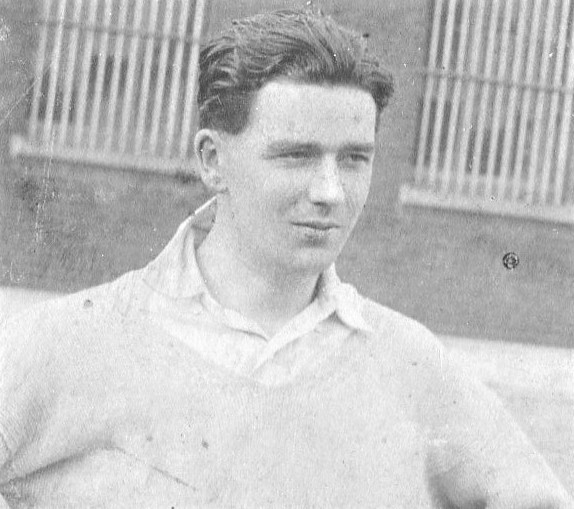

25th March 1886 - 15th May 1917. A chorister at St Paul's Cathedral who served in WWI with the Honourable Artillery Company and fell at Bullecourt.
John left St Paul’s School in 1903 and I can’t find what happened directly after, however, at some point he joined Alliance Assurance. In those days, jobs available for educated men were in teaching, insurance and banking. All three boys entered all three disciplines. Ernest was deemed the cleverest of the three and he was sent off to Sutton Valence School and from there to St John’s College, Oxford, while Reuben went into banking.
John’s workplace was at Head Office at 1 Bartholomew Street in the city of London
The beginning of the century in London was an exciting place to be. London hosted its first Olympic Games in 1908; the tube network was growing; Selfridges opened its doors in 1909 and the suffragettes were campaigning for the vote. In 1908, the Territorial Force (later Territorial Army) was created and this may well have been the incentive for John and some of his workmates to sign up for some recreational activity with purpose.
On March 1st 1909, John added his name to the book of the Honourable Artillery Company at Armoury House. In those days you needed to be a gentleman to join and have means to support yourself with all the social activities. John would have climbed the wide staircase and then the signing-in ceremony took place in The Court Room, as it still does. He was just coming up to 23 years of age, was fit and at 5’9” not the tallest of his compatriots but with excellent eyesight! The initial signing was for four years.
John’s papers show that around this time, he changed his middle name to Heriot. All three boys decided to call themselves poetic names – so John was ‘Heriot’, Ernest was ‘Wingrave’ and Reuben was Oswald – each name reflecting the first letter of their real names. It is almost like the Bronte sisters with their necessary pseudonyms, but John was now signing official documents with that name. This remains a mystery.
Training camps were set up for the men. The TF had been set up to provide ready soldiers for any war that might come along and to defend Britain. At this stage no man could be forced to fight overseas, it was very much seen as home defence. This of course altered significantly a few years down the line. The main training camp was at Bulford in Salisbury and John’s first experience between 29th May – 6th June 1909 elicited this post card back to brother Reuben, showing his dry humour.
“No 2 Coy. HAC. Bulford Camp, Salisbury. Wednesday
Quite a delightful stroll on Monday from 7 in the morning until 6. It has been raining like hell for the last 48 hours. We have not got a dry article amongst us. Our tent leaks like blazes. Love John
When the men were not working or training, they had access to the social side of the HAC, including the sports ground right at the heart of the city. John took advantage of the cricket facilities to play for the team. This is one of 3 photos we have (so far) of JHP and shows him in relaxed mode at Armoury House, and I reckon this is about 1910.
John continued to work for the Allied Assurance rising to inspector and I like to think of this as a halcyon period of his life where he was invited to dinner socially; played cricket; trained with the HAC; went to services at St Paul’s; went home to his family where he played his piano and lived a London lifestyle. I imagine he got caught up in the spirit of the Olympic Games; maybe went over to Oxford to see Ernest and visited the theatre and opera etc. He had been trained into being a gentleman by his mother and I imagine he moved in the ‘right’ circles to advance his career. Every time I see something of that period in a costume drama with the elite of society drinking champagne and partying, I think of John.
Family folklore tells of a man who looked after his sisters and was very much the leader. I get the impression of somebody with a good sense of humour, a fair and decent man, indeed, the ‘Boys’ Own’ hero springs to mind. He probably felt a sense of responsibility for his siblings, particularly as he was the eldest man in the family with the disappearance of his father and we know that when the youngest sister, Gladys, got herself ‘into trouble’ in 1913-14, John and Ernest came to her rescue against the outrage of their mother.
In 1913, John re-enlisted for a further period of one year and again in 1914, not knowing that this year was to see him into action in a War which should never have happened.
War was declared on August 4th 1914. John was mobilized on 5th and now all that training was about to be tested. On 12th September, John was promoted to Sergeant with the 1st battalion and on 18th September was in the first wave of soldiers sent to France.

John Harold Pritchard